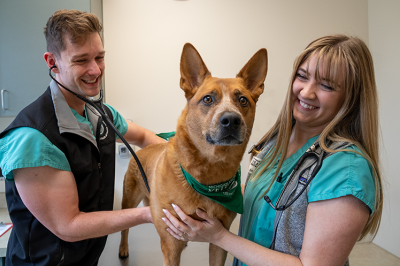
Holistic approaches to animal health are gaining momentum as more pet owners and veterinarians recognize the benefits of integrating traditional and modern medicine. While conventional veterinary practices focus on diagnosing excede antibiotic for sale 100ml and treating symptoms, holistic care aims to treat the whole animal—addressing physical, emotional, and environmental factors that contribute to health and well-being. By combining modern diagnostic tools and treatments with time-tested practices like herbal medicine, acupuncture, and nutritional therapy, holistic veterinary care offers a comprehensive approach to keeping pets healthy. This integrative model not only improves overall outcomes but also provides options for animals that may not respond well to conventional treatments.
- The Principles of Holistic Animal Care
Holistic animal health revolves around the concept of balance—maintaining harmony in the body, mind, and environment to prevent disease and promote well-being. This approach encourages veterinarians and pet owners to look beyond immediate symptoms and consider factors such as diet, exercise, mental stimulation, and emotional stress. While conventional medicine often focuses on addressing specific health issues with pharmaceuticals or surgery, holistic care emphasizes preventive measures and natural therapies to support the body’s innate healing abilities. By treating the root cause of an illness, holistic veterinarians aim to promote long-term health and improve the overall quality of life for pets.
- Combining Traditional Remedies with Modern Treatments
One of the core tenets of holistic veterinary care is the integration of traditional healing practices with modern medical advancements. For example, herbal medicine has been used for centuries to treat ailments in animals, and many holistic veterinarians incorporate natural remedies like turmeric for inflammation, echinacea for immune support, and valerian root for anxiety. These herbal treatments can complement conventional medications, offering a gentler alternative with fewer side effects. Similarly, acupuncture—a practice that originated in ancient China—is increasingly being used alongside conventional pain management techniques, particularly for pets with arthritis or musculoskeletal disorders. When combined, these approaches often provide a more comprehensive and personalized treatment plan for pets.
- Nutritional Therapy as a Pillar of Holistic Health
Diet plays a critical role in holistic animal health, as nutrition affects everything from a pet’s immune system to its energy levels and emotional well-being. Holistic veterinarians often recommend customized diets tailored to the specific needs of an animal, considering factors like breed, age, and existing health conditions. Raw food diets, grain-free options, and home-cooked meals are becoming more popular as alternatives to commercial pet food. Additionally, natural supplements such as omega-3 fatty acids, probiotics, and glucosamine can support joint health, digestion, and skin conditions. By focusing on optimal nutrition, holistic approaches can help prevent disease and manage chronic health issues more effectively than standard pet diets alone.
- Stress Reduction and Emotional Well-Being in Holistic Care
Emotional health is a key consideration in holistic veterinary care, as stress can significantly impact an animal’s physical health. Pets may experience anxiety due to environmental factors, trauma, or separation from their owners, and this stress can manifest in behavioral issues, digestive problems, and weakened immunity. Holistic veterinarians often incorporate techniques such as massage therapy, aromatherapy, and behavioral counseling to help reduce stress in animals. For pets with chronic anxiety, natural remedies like CBD oil or flower essences may be recommended to calm the nervous system without the side effects associated with conventional sedatives. By addressing both emotional and physical health, holistic care ensures that pets are happier and more resilient.
- The Role of Preventative Care in Holistic Medicine
Prevention is at the heart of holistic animal health. While modern veterinary care typically intervenes after a problem has been identified, holistic approaches focus on maintaining wellness and preventing illness from occurring in the first place. Regular check-ups, early detection through modern diagnostics, and lifestyle adjustments are critical components of a holistic care plan. Practices like chiropractic adjustments, energy healing, and hydrotherapy are often used to maintain mobility and improve circulation, particularly in aging pets. Vaccination protocols may also be individualized, with holistic veterinarians advocating for fewer vaccinations and more emphasis on boosting natural immunity through proper diet and environment. This proactive approach helps prevent chronic conditions and ensures long-term well-being.
- Integrating Holistic and Modern Medicine for Optimal Pet Health
The most effective holistic care often involves a balance between traditional and modern medicine. For example, a pet with a severe infection may require antibiotics, but a holistic veterinarian might also suggest probiotics to support gut health during recovery. In cases of chronic illness like kidney disease or cancer, modern therapies like surgery, chemotherapy, or specialized drugs may be complemented with acupuncture, nutritional therapy, or herbal supplements to enhance overall vitality and minimize side effects. By integrating these two approaches, veterinarians can provide a more well-rounded treatment that addresses both immediate health concerns and the underlying factors contributing to illness.
In conclusion, holistic approaches to animal health offer a comprehensive and personalized way to care for pets by blending the strengths of traditional and modern veterinary medicine. By addressing the whole animal—physically, emotionally, and environmentally—this integrative model supports long-term health and wellness. As more veterinarians and pet owners embrace this philosophy, the future of animal care will likely continue to evolve, providing pets with more diverse treatment options and improved quality of life.